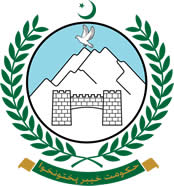About Department
Entomology is one of a major department of The University of Agriculture Peshawar. Since its establishment in 1962, the department has been involved in teaching and conduction of basic and applied research in different areas of Entomology. The department has highly qualified faculty, having Ph.D degrees from Japan, China and Pakistan, with dynamic teaching and research expertise. Since its inception the department has produced over 550 bachelor graduates, 500 master graduates and 21 Ph.Ds. Faculty members and students have published more than 500 research articles in national and international journals. Faculty members have written four books also. Additionally, ten research projects have been completed by the faculty members of the department.
Entomology Department is equipped with well-established laboratories with quality microscopes, growth chambers, insect collection and storage equipment that facilitate students and researchers in various entomological fields such as insect taxonomy and biodiversity, Biocontrol, IPM, Biodiversity, Apiculture and Pollinators. Department has established small insect museum with waste and diverse insect collection. The department plays a pivotal role in addressing challenges related to agricultural pests, vector-borne diseases, and pollinator conservation. It actively contributes to food security and environmental sustainability.
The department plays a crucial role in addressing challenges related to agricultural insect pests, vector-borne diseases, and pollinator conservation. Its research and training programs emphasize Insect taxonomy, integrated pest management (IPM), biological control, pesticide safety, and modern techniques for sustainable agriculture and to minimize chemical reliance while maximizing crop protection.
Collaboration with industry and research institutions enhances the department's impact on sustainable agriculture. Training programs equip students and farmers with practical knowledge on pest control and pollination management. The department remains committed to advancing entomological research and addressing emerging agricultural challenges.
Vision:
To provide and promote quality education and research with the aim to develop trained and skilled professionals in various field of entomological sciences through teaching, innovative research and effective outreach initiatives.
Mission:
To produce quality graduates across various disciplines of Entomology, equipping them with the expertise to assist farmers in addressing pest-related challenges and emerging issues in the field.
Scope:
Entomology is one of the core disciplines of agriculture. It has a vast scope across various fields, including agriculture, medicine, environment, and industrial applications thus plays a crucial role in many aspects of human life and ecological balance.
- Agriculture: Entomology helps in understanding insect pests, their behavior, and management strategies to minimize crop damage and promote sustainable agriculture.
- Public Health: Entomologists study insects that transmit diseases like mosquitoes (malaria, dengue), sand fly (Leshmenia), ticks (Lyme disease), and flies (typhoid, cholera).
- Environmental Conservation: Entomology informs strategies for conserving and managing ecosystems, including pollinator conservation, biological control, and invasive species management.
- Forensic Science: Entomologists apply their knowledge to aid in forensic investigations, such as estimating post-mortem intervals based on insect activity.
- Food Safety: Entomologists work to prevent insect contamination of food products, ensuring safety and quality for consumers.
- Biological Control: Entomology involves the use of beneficial insects to control pest populations, reducing the need for chemical pesticides.
- Ecological Research: Entomologists study insect ecology, behavior, and evolution, contributing to our understanding of ecosystems and biodiversity.
- Biotechnology: Entomology has applications in biotechnology, such as the development of insect-resistant crops and biopesticides.
- Climate Change: Entomologists investigate the impacts of climate change on insect populations, ecosystems, and human societies.
Area of Job Opportunities
- Universities and Educational Institutions
- Provincial Agriculture Research System,
- Agriculture Extension Department,
- Health Department (Dengue / Malaria Vector Control Program),
- Atomic Energy Commission (Agriculture Division)
- National Agriculture Research Council (NARC)
- Pakistan Science Foundation (Pakistan Museum of Natural History),
- Federal Seed Certification Department
- Federal Plant Protection Department (Quarantine and Anti locust wing)
Contact
Department of Entomology.
Phone Office: +92 91 9221287
Fax: +92 91 9221262
Mobile: +92 333 9269031
Email: amjadusman@aup.edu.pk, ausman_ento@yahoo.com
Mailing Address: Department of Entomology , The University of Agriculture, Peshawar 25130, Khyber Pakhtunkhwa, Pakistan.





